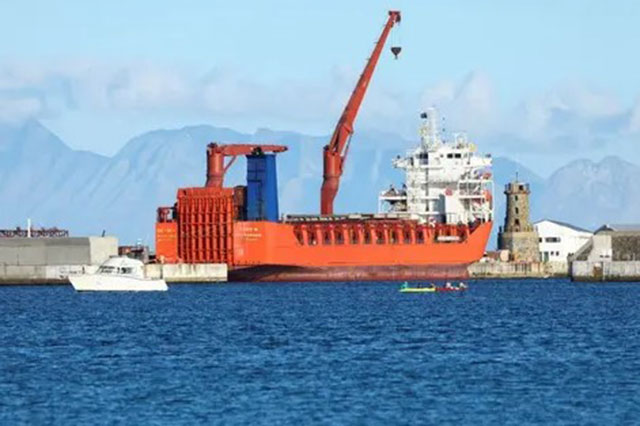Cape Town – The South African government on Tuesday released a four-page executive summary of the findings of an investigative report regarding the controversial docking of a Russian ship in Simon’s Town last year.
The report was a result of an independent panel appointed by President Cyril Ramaphosa.
Back in May, the United States Ambassador to South Africa, Reuben E Brigety II, informed the media in Pretoria that Washington had determined that the ship was loaded with weapons while docked at the naval base in December.
But the summary reveals that the Russian Lady R cargo ship was carrying weapons ordered from a United Arab Emirates (UAE) company, and neither the South African National Defence Force (SANDF) nor Armscor, the entity that placed the order, knew about the Russian ship’s involvement.
“The Panel established that the goods that were delivered by the Lady R in Simon’s Town were equipment for the SANDF, which it had requested, had been ordered by Armscor and waited for since 2018. The equipment was ordered from a company based in the United Arab Emirates. They were long overdue,” says the report.
LadyR Report Executive Summ… by Krash King
It states that the weapons order was made in 2018 but was delayed due to various factors, including the Covid-19 pandemic and the Russia-Ukraine conflict.
“Neither the SANDF, Armscor or AB Logistics (the division of Armscor responsible for providing logistic freight and travel services to Armscorand the SANDF) had chosen the Lady R as a vehicle for delivery, nor did they have control over the process, in terms of the relevant contractual arrangements. South Africa in fact had no control over the selection of the vessel,” the report says.
The report also notes that the ship was under sanctions, but this was only discovered by Armscor in mid-October 2022 when the ship was already en route to South Africa. It further reveals that the ship’s cargo was offloaded at night.
ALSO READ | US embassy reacts to Russian cargo vessel probe in SA
The panel found no evidence goods being loaded onto the ship after unloading.
The report explains that the Lady R switched off its Automatic Identification System (AIS) transponder due to the urgent circumstances of its docking in Simon’s Town and concerns about being tracked by foreign intelligence agencies. However, the reasons behind this remain unclear.
In conclusion, the report suggests that the Lady R and those who assisted it violated several provisions related to commercial vessels docking at South African ports. However, the recommended remedial action only extends to future management of foreign vessels’ docking at South African ports.
The investigative panel interviewed 47 people under oath and received 23 written submissions. It also mentions that some entities and individuals who claimed to have relevant information failed to provide independent knowledge of the facts related to the case.
Follow African Insider on Facebook, Twitter and Instagram
Picture: Twitter/@TheLegalSA
For more African news, visit Africaninsider.com
Compiled by Betha Madhomu


